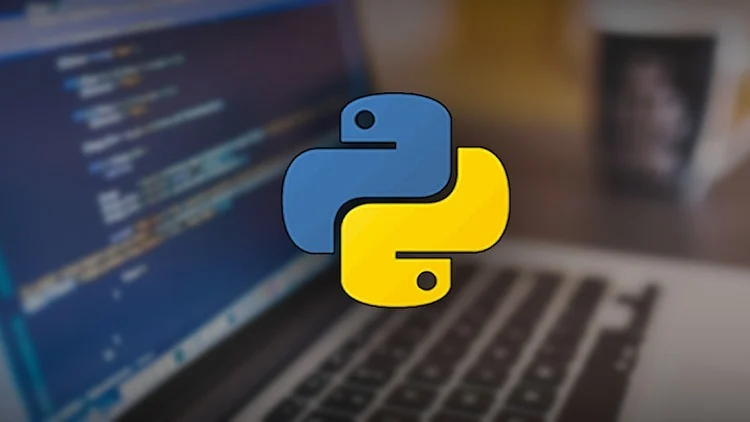How to Become a Java Developer
Your Complete Guide to Becoming a Java Developer
Java Developers design, develop, and maintain software applications using Java. They write clean, efficient code for desktop, enterprise, and mobile apps. Java's versatility makes it a top choice across industries, from banking to entertainment.
Disclaimer: Salary ranges vary significantly based on experience level, location, industry, and company size.
Start Your JourneyWhat Does a Java Developer Do?
Role Definition
Java Developers create applications, tools, and systems using Java. They focus on building backend systems, mobile apps, and web solutions with efficient, scalable code. Java’s portability, security, and scalability make it ideal for enterprise solutions.
The Java Developer role is often compared to other development roles:
- Java Developer vs. Front-End Developer: A Front-End Developer focuses on the user-facing part of a website (UI/UX) using HTML, CSS, and JavaScript. A Java Developer typically works on the server-side (backend), handling business logic, databases, and APIs.
- Java Developer vs. Python Developer: While both are versatile backend developers, Java is often favored for large-scale enterprise applications, Android development, and systems requiring high performance and strict typing. Python is popular in data science, AI/ML, and rapid web development.
Typical Responsibilities of a Java Developer
- Software Development: Write, test, and maintain code to ensure software applications are functional, reliable, and scalable.
- Debugging and Troubleshooting: Debug issues in the code and provide fixes or enhancements to resolve technical problems.
- Database Management: Design and implement efficient database queries and integrate databases (SQL and NoSQL) with Java-based applications.
- Collaboration: Work closely with project managers, front-end developers, and other team members to align with user requirements.
- Code Optimization: Optimize application performance by analyzing and refining the code's efficiency, memory usage, and speed.
- Software Architecture: Contribute to system design and the selection of appropriate frameworks, libraries, and tools.
- Security Management: Ensure software applications follow the best practices in security, including secure coding and vulnerability testing.
Common Industries & Environments
Java Development plays a vital role across various industries, from financial services to entertainment:
- Technology & Software: Work on software applications, enterprise solutions, and cloud-based systems.
- Finance & Fintech: Develop secure, scalable systems for digital banking, trading platforms, and financial tools.
- E-commerce & Retail: Develop robust backend systems for online shopping platforms, payment gateways, and inventory management.
- Healthcare & Biotech: Develop medical applications, patient management systems, and telemedicine software.
- Gaming & Entertainment: Develop interactive mobile and desktop applications, including gaming apps and media platforms.
- Government & Public Sector: Build and maintain secure, scalable government software applications and platforms.
Key Skills Required for Java Developers
Technical Skills
Soft Skills
Courses to Get These Skills
Gaining Practical Experience as a Java Developer
Theoretical knowledge is important, but hands-on experience is what truly builds a successful Java Developer career.
Create your own Java-based projects, such as a simple web application or a task automation tool, to build practical skills and enhance your portfolio.
Join open-source Java projects on platforms like GitHub to collaborate with experienced developers, improve your coding skills, and gain real-world exposure.
Apply for internships or freelance opportunities that allow you to work on live projects, receive feedback, and expand your professional experience.
Engage in coding challenges on platforms like HackerRank or LeetCode to sharpen your problem-solving skills, learn new algorithms, and benchmark your abilities.
Educational Path for Java Developers
A mix of formal education, online learning, and continuous self-study forms a strong foundation for a Java Developer.
Formal Education
A Bachelor's Degree in Computer Science or a related field provides a strong foundation in programming, algorithms, and system design. A Master's Degree can deepen expertise in advanced Java concepts and software architecture, preparing you for senior roles.
Online Courses & Bootcamps
Online learning is a flexible and effective way to gain job-ready Java skills.
Premium Courses & Specializations
Free Courses
Self-Study & Practice
Continuous learning is key. Read essential books like "Effective Java" by Joshua Bloch and "Clean Code" by Robert C. Martin. Practice by working on real-world challenges, such as building an e-commerce system or contributing to open-source projects on GitHub. Familiarize yourself with tools like IntelliJ IDEA, Eclipse, Maven, and the Spring Framework to enhance your efficiency.
Further Resources to Aid Your Journey
Explore these resources to deepen your understanding and stay connected with the Java community.
Blogs & Articles
- Java Tutorial for Beginners
- Java Quiz
- Features of Java
- Packages in Java
- Java Interview Questions
- Top Java Books for Every Programmer
- Java Developer Resume Samples
Stay updated with the latest tutorials, career advice, and language features in the Java ecosystem.
Online Communities
Connect with a global community of Java developers to ask questions, share knowledge, and collaborate.
Relevant Tools & Platforms
Mastering these essential Java development tools will enhance your coding efficiency and project management skills.
Frequently Asked Questions
Java is a statically typed, object-oriented programming language known for its portability (“write once, run anywhere”), scalability, and security. It’s widely used for developing cross-platform enterprise applications, unlike languages like Python, which are dynamically typed and often preferred for data science and rapid scripting.
While a degree in computer science is beneficial, it’s not mandatory. Many successful Java Developers are self-taught or have completed bootcamps. A strong portfolio of projects, practical skills, and certifications can be just as valuable to employers.
You need proficiency in core Java syntax, object-oriented programming, database management (SQL/NoSQL), and experience with Java frameworks like Spring and Hibernate. Knowledge of web technologies, APIs, version control (Git), and cloud platforms will give you an edge.
Your portfolio should include a range of personal projects that showcase your coding skills and problem-solving abilities. Examples include a web application, a mobile app, or a microservice. It should also demonstrate your understanding of Java best practices, such as clean code, testing, and optimization.
Stay updated by reading official Java documentation, following influential Java blogs and developers, attending tech conferences or webinars, and participating in online coding challenges. Joining Java-related forums and contributing to open-source projects are also great ways to stay current.


